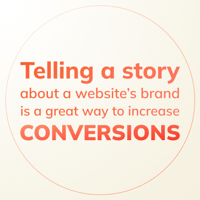HubSpot Implementation
CREATING A SALES PROCESS IN HUBSPOT: A GUIDE TO LIFECYCLE STAGES, DEALS, AND CONTACTS
Posted By On the fuze, Apr 13, 2023 08:53:22 PM

Stay updated on all things HubSpot automation, website development and design by following our blog posts.
As a business owner, knowing exactly what revenue is in your pipeline is crucial to forecasting growth.
A sales pipeline is a visual representation of the stages in your sales process, from the initial contact with a potential client to closing the deal.
In this article, we will explore the fundamentals of creating a sales process in HubSpot, and delve into the specifics of leads, deals, and contacts.
Lifecycle Stages in HubSpot
Lifecycle stages help categorize your contacts and companies based on where they are in your marketing and sales processes.
-1.png?width=320&height=316&name=Image%201%20(1)-1.png)
Using the Lifecycle Stage property allows you to determine where a specific contact or company is in your processes, understand how leads are handed off between marketing and sales, and if you have potential clients who have expressed interest in your product or service but have not yet purchased. In HubSpot, leads enter the lifecycle stage through various channels, including web forms, live chat, and email
Deals in HubSpot
-1.png?width=300&height=322&name=Image%203%20(1)-1.png)
Tracking Progress of Deals in HubSpot
Difference between Contacts, Leads, and Deals
-1.png)
Customers are existing clients who have already purchased, and you have a contact created in the database.
Leads are potential clients who have not yet made a purchase.
Deals are open when there are leads that are in active sales negotiations and are being actively pursued by your sales team.
HubSpot Vs Salesforce
If you are migrating from Salesforce, the key difference you will find is that HubSpot treats leads as a categorized entity of contacts, whereas Salesforce combines leads and contacts. This can make it more difficult to manage your lifecycle stage in Salesforce, particularly if you have a large number of leads.
.png?width=341&height=113&name=Image%205%20(1).png)
In conclusion, by utilizing a tool such as HubSpot to handle your lifecycle stage, you can simplify your marketing and sales procedures and enhance your likelihood of success.
With HubSpot's assistance, you can conveniently design a sales process tailored to your company's requirements and enhance your management of leads, deals, and contacts.
If you are unfamiliar with HubSpot, take some time to investigate its capabilities and learn how it can aid in the growth of your business.
Related Post

-1.png?width=300&height=326&name=Image%202%20(1)-1.png)
